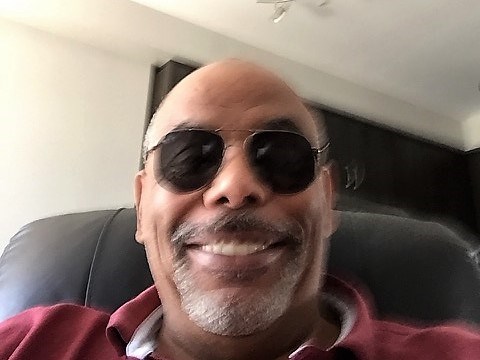For the next several weeks, People of Collingwood will feature founding members of the new Unity Collective, a town-sanctioned group that aims to provide advice to council and the community on addressing systemic racism and diversity in Collingwood.
******
A new community collective is hoping to peel back the layers of Collingwood’s history and expose some of the unpleasant past that still haunts the town to this day.
For this week’s edition of People of Collingwood we sat down with Jeffrey Smith, 70, a member of the Unity Collective.
Q: For how long have you lived in Collingwood?
A: I live in Kingston, but I’m originally from the Collingwood area. I grew up in Creemore and went to Stayner Collegiate Institute.
My relatives still live there and I’m in touch with them all the time. I’m still attached to the town in many ways.
Growing up, I lived on a farm with my parents.
I went to Simon Fraser University and the University of Guelph and was involved in athletics there, in basketball.
I worked in Collingwood for some time in the hospitality business; I ran the Arlington Hotel back in the early days.
Q: What keeps you busy now?
A: I’m the chairperson for the Owen Sound Emancipation Festival, which is the oldest emancipation festival in North America. In 2021 it will be our 159th.
Q: Why did you decide to get involved in the Unity Collective?
A: Collingwood has a jaded history when it comes to racism.
When I was growing up, we did experience a lot of racism, even on our farm. We actually had a cross burned at our farm, which was northwest from Creemore. My dad was a cattle breeder.
They didn’t want us in the area. When I was growing up and working in Collingwood, I experienced a lot of situations.
The one situation that got me involved in this was I phoned the mayor.
There was an area of town where descendants of slaves (lived) who had ran up the Bruce Trail for freedom. The area (was comprised) basically of my family. There were others: the Courtneys, Greens, Sheffields, Wilsons, Millers and the Coopers. The area in which they settled was outside of town at the top of Sixth Street going out toward High Street.
It was called "Coontown."
Many people now laugh at that, but it’s really not a joke because it was serious back in the day.
When I worked at the Arlington, I heard it a lot.
It’s taken a backseat as time goes by, but it’s still remembered.
Anyway, I asked the mayor if we could do something about this, and through that, I became part of the collective.
One of its goals is to let people know what happened. Let the younger generation know.
It’s part of the history and what we don’t want to do is bury it.
Q: Why is this work so important?
A: Collingwood has had (confederate) flags pop up. You had the Soldiers of Odin in town.
Back in my day, it wasn’t the Soldiers of Odin; it was the Klu Klux Klan and the Western Guard.
Those two groups still exist, although they’re not prevalent in the Collingwood area.
They’re still out there.
It’s not like it’s going away, but things can change.
Q: Did any of your experiences in Collingwood as a Black man factor into your decision to leave the area?
A: I never left Collingwood for any radical or racial reason.
Back in those days, I hung around with my cousins... We never laid down for anybody. Maybe that was part of the problem.
When you’re 6 foot 4, nearly 300 pounds and you’re a Black guy in town, you stick out.
We were a bit over the top when the “N-bomb” was thrown at us.
It’s common these days for someone to say, “My n-----.” I still take offence to that, but I understand that because of social media it’s become more acceptable.
It’s never really acceptable. It goes back to the history of where it came from.
Q: How have your experiences with the collective been so far?
A: Because of COVID, we haven’t yet had a chance to all meet face-to-face.
All our meetings are on Zoom until further notice.
One of my ideas was putting storyboards up in the [area formerly called] "Coontown" that tells people the history. It’s a rich history.
They used to put boulders at the top of Sixth because that’s where the area started and they didn’t want people to drive up those roads in the wintertime.
There are so many Black people who are related to me in the area who have different stories.
Q: What are your hopes moving forward for the collective?
A: I’m hoping the collective will attend the Owen Sound Emancipation Festival in 2021. I don’t know what the COVID situation will be like then.
Either way, we’ll have something.
We want to attach ourselves to other groups that are doing good things in the community (to address) not just racism, but change.
We want to see change. That’s the only way you’ll have a rich community.
For our feature People of Collingwood, we’ll be speaking with interesting people who are either from or are contributing to the Collingwood community in some way, letting them tell their own stories in their own words. This feature will run on CollingwoodToday every Saturday. If you’d like to nominate or suggest someone to be featured in People of Collingwood, email [email protected].

